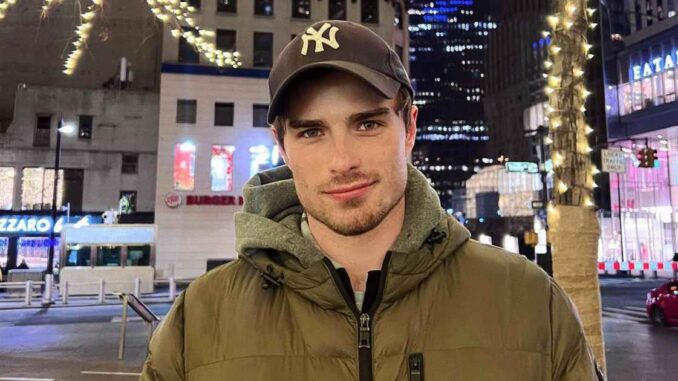
Leaving the Inferno: Michael Bradway’s Leap from Chicago Fire to Amazon’s Prime Video
For over a decade, the roaring sirens and crackling flames of “Chicago Fire” defined Michael Bradway’s career. As the technical advisor and recurring guest star playing the ever-reliable Deputy District Chief Ray Riddle, Bradway was more than just a face in the background; he was a crucial artery pumping authenticity into the heart of the show. His departure, therefore, leaves a noticeable void, not just for viewers who appreciated his gruff competence, but also for the series itself, which benefited immeasurably from his real-world experience. Bradway’s transition to a new role at Amazon Prime Video is a significant moment, representing not only a personal career shift but also highlighting the evolving landscape of television and the increasing demand for verisimilitude in storytelling.
Bradway’s contribution to “Chicago Fire” was unique. He wasn’t just an actor reciting lines; he was a walking, talking encyclopedia of firefighting knowledge. Years of experience in the Chicago Fire Department informed every scene, every tactical maneuver, every subtle gesture. This authenticity was palpable, grounding the dramatic storylines in a reality that resonated with viewers. When Riddle delivered orders with steely resolve, viewers knew it wasn’t just acting; it was the ingrained authority of a seasoned veteran. He helped bridge the gap between entertainment and reality, ensuring that the series, while inherently dramatized, maintained a respectful and believable portrayal of the sacrifices and challenges faced by firefighters.
The impact of his contributions extended beyond the screen. Behind the scenes, Bradway served as a mentor to the actors, guiding them through the intricacies of firefighting protocol and helping them understand the psychological pressures of the job. He taught them how to properly handle equipment, how to move with purpose, and how to portray the camaraderie and unspoken understanding that bonds firefighters together. This immersive training elevated the performances, lending a sense of realism that was critical to the show’s success. He wasn’t just an advisor; he was a teacher, a guide, and a vital link to the real world of firefighting.
The decision to leave “Chicago Fire” for a role at Amazon Prime Video likely wasn’t an easy one. He was an integral part of a well-oiled machine, a fixture in a world he clearly loved. However, the allure of a new challenge, a new platform, and a potentially larger scope of influence likely proved too tempting to resist. His expertise, honed by years of experience on the ground and refined by his work on “Chicago Fire,” makes him a valuable asset to any production company seeking to accurately depict emergency services, military operations, or any field requiring specialized knowledge.
Amazon Prime Video, with its commitment to original programming and its global reach, offers a platform for Bradway to potentially impact a wider audience and contribute to a broader range of projects. Perhaps he will be advising on new series, ensuring that other productions benefit from the same level of authenticity he brought to “Chicago Fire.” Perhaps he will be involved in the development of new technologies or training programs that utilize the platform’s vast resources. The possibilities are numerous, and the potential for Bradway to shape the future of authentic storytelling is significant.
Ultimately, Michael Bradway’s departure from “Chicago Fire” marks a turning point. It signifies the increasing value placed on realism and authenticity in television, as well as the growing influence of streaming services in shaping the landscape of entertainment. While the sirens of Firehouse 51 will surely miss his presence, his legacy of authenticity will undoubtedly continue to inspire and inform future productions. His leap from the inferno of “Chicago Fire” to the broader realm of Amazon Prime Video is not just a career move; it’s a testament to the enduring power of experience and the ever-growing demand for truth in storytelling. He leaves behind a show that is richer for his contributions, and steps forward into a future where his expertise can shape the way stories are told and the way we perceive the world.
